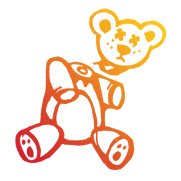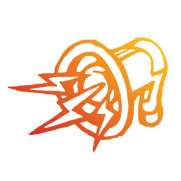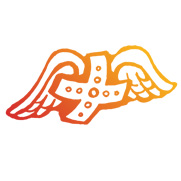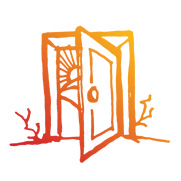Graduates
Invaluable advice for design graduates (and young designers)
 Any agency worth its salt has a very active internship scheme whereby the owners of the business look to harness young talent – with the view to turning them into viable creative generators of income. If this sounds rather commercial, it’s because realistically, this is how the creative industry works.
Any agency worth its salt has a very active internship scheme whereby the owners of the business look to harness young talent – with the view to turning them into viable creative generators of income. If this sounds rather commercial, it’s because realistically, this is how the creative industry works.
Further afield and in other sectors, internships have become the government’s bridgehead into the dangerous territory of youth unemployment within the UK. And it’s easy to see why, with one statistic reading : “One-third of this year’s graduate vacancies would be filled by applicants that had worked for the hiring organisation during their studies”
The design industry has always been well developed for getting young people on board and placed within creative teams. Whilst it’s wonderful that we are seen to be early adopters and pioneers – it does make your environment and career choice a little more, well, competitive.
Firedog, an agency running for more than a decade, has seen its fair share of graduates pass through the studio doors. We have found that, talent aside, there are very certain character traits which immediately stand you in good stead for a career within a creative agency. So we thought we’d share our ideas on what will make you stand out from the competition and give you the best chance of making a lasting impression.
Our advice for design graduates:
1) Be awesome in your approach

You are an expression of your own creative thinking, so get disruptive.Congratulations on choosing the most competitive career there is. Higher education in the UK churns out what seems like millions of designers every single year. Also, don’t forget, the world’s best young designers flock from all over the world to work in London. So not only do you compete against your fellow Brits, but with the rest of the globe too. Where does this leave you? You’ll need to very quickly understand the concept of “cut-through”. We get SO many emails with Dear Sir / Madam etc. We even get heinous emails where a bunch of agencies are included in the “To” field. Urrgggggh. Do your research. Choose a careful selection of agencies that match your ambition and creative desires. Now stalk them. Find out the Creative Directors first name, heck, even their dogs name. Make your approach highly personal, VERY quirky and very clever. Create some serious impact. You are an expression of your own creative thinking, so get disruptive. Even if you completely lack talent, chances are you will get a meeting out of pure sympathy.
2) You’re not special… yet.

Learn the rules so you know how to break them properly.It is going to take some time to prove your commercial worth within the design industry. No matter what you have achieved thus far, it’s all been a bit of a beta test for your real working career. Please don’t be arrogant; it will never work to your advantage. In our eyes, you are green, untested and volatile. We know from experience that no matter how good you think you are, you’ll still take absolutely ages to complete what takes us five minutes. Your new masters are going to be mostly interested in how they are going to leverage you for profit. They’re going to be looking to exploit you. They’ll probably want you to tackle the shitty work they don’t want to touch – the kind of work that rarely requires brilliance, but merely a diligent and stable hand. It’s nigh on possible for you to be outstanding as soon as you start. Talent is empowered by skill and you will need to understand that it’s going to take a while to get the two aligned. Surprisingly, with young designers, we’re looking for a standard of work that fits in rather than stands from the outside. As big boss Dalai Lama states “Learn the rules so you know how to break them properly.”
3) Talent is 20% of the game
 Let’s look at the concept called “talent”. Believe it or not, being talented at using your hands or tools to create outstanding design is such a minute part of the picture. Talent can never ever work in isolation. There are plenty of people who are brilliant musicians, for example. Many of them haven’t a pot to piss in. On the flip side, we’ve all seen people at the top of their game, and they’re not THAT great. They’ve merely worked out what it takes to succeed. Character is everything. Talent is not a replacement for personality. You have to be good with people, you have to be willing to learn, and mostly, you have to be humble. All other professions employ human and interpersonal skills as de facto. Why should the creative industry be any different? You’re going to have to work with non-creative types. This means you’re not going to have a love of pixels in common. So you’d better work on your team skills.
Let’s look at the concept called “talent”. Believe it or not, being talented at using your hands or tools to create outstanding design is such a minute part of the picture. Talent can never ever work in isolation. There are plenty of people who are brilliant musicians, for example. Many of them haven’t a pot to piss in. On the flip side, we’ve all seen people at the top of their game, and they’re not THAT great. They’ve merely worked out what it takes to succeed. Character is everything. Talent is not a replacement for personality. You have to be good with people, you have to be willing to learn, and mostly, you have to be humble. All other professions employ human and interpersonal skills as de facto. Why should the creative industry be any different? You’re going to have to work with non-creative types. This means you’re not going to have a love of pixels in common. So you’d better work on your team skills.
4) Be nice, be humble

…so much of what will set you apart from your peers is how much nicer you are than your competitors.Design directors are invariably looking for out for the long term or offering positions to the people they get on best with. It stands to reason that it is a good idea to be liked. Also, taken from the managers perspective; humility is such a refreshing experience in a world dominated with stress, ego’s and prima donnas. We all like to work with laid back, genuine and kind people. We work so hard we hardly see our friends outside of office hours, so you’d better be good to be with. Deep down, successful creative types are traditional and rather down to earth. They make a lot of judgments on some very established traditional human values. So, don’t worry about handing teacher the apple. Offer to make tea. Clean stuff up. Be useful. We’re a bunch of messy sods and your efforts in this department alone make you partly employable! The message you’re putting out: “I’m really just happy to be here”. One of our current senior staff started out on day one on a graduate position by planting out our flower pots with new spring buds. Mental? Perhaps. Memorable? Certainly.
5) Speak up!

Early on in your career, you will be remembered more for your attitude than your skills. Make sure you actively engage with other people.Early on in your career, you will be remembered more for your attitude than your skills. Make sure you actively engage with other people. Be sociable and ask questions. It is so difficult to break out the mould and leave the musty corner of the studio, but it’s vital for making an impression. Ultimately your goal is to be remembered and you need to get out and stimulate conversation. Don’t be scared by the idea of the Design Director chewing your ear off. If he does, he’s either had a bad morning or he’s a dick. If he’s a dick, don’t worry, there are a hundred other agencies you can gun for. Get involved in brainstorms and volunteer your thoughts. Of course you’ll get some strange looks but don’t let this deter you. An apprenticeship is a test of your abilities and you’ll remain untested if you stay quiet.
6) Be positive and bounce back
 We can all be a bunch of miserable bastards sometimes. It’s tough work, bleeding your brain for clients day in and day out. This can grind us down and we can snap. Positivity is not only the smile on your face and your demeanor but also a lot to do with how you bounce back and take criticism. Good vibes are contagious and you can become known in the agency just by bringing a bit of energy back into a tired creative team. You’re going to need a thick skin in this business. You’re going to get an awful lot of criticism from often rather unqualified people. Creativity is a very subjective thing and everyone likes to pitch an opinion. It’d be a good idea to develop your Teflon coating early on in your working life.
We can all be a bunch of miserable bastards sometimes. It’s tough work, bleeding your brain for clients day in and day out. This can grind us down and we can snap. Positivity is not only the smile on your face and your demeanor but also a lot to do with how you bounce back and take criticism. Good vibes are contagious and you can become known in the agency just by bringing a bit of energy back into a tired creative team. You’re going to need a thick skin in this business. You’re going to get an awful lot of criticism from often rather unqualified people. Creativity is a very subjective thing and everyone likes to pitch an opinion. It’d be a good idea to develop your Teflon coating early on in your working life.
7) Carpe Diem! Be proactive
 Do you find yourself sitting in a corner of the studio cutting up cardboard? Does it grill you and wind you up? Then don’t stand for it! This internship is your opportunity to create a bit of attitude and get noticed. Keep your ears and eyes open on a latest brief – then take the opportunity to show the local talent up. Shadow the big players – take the days brief back home and drum up some creative thinking. Your work, even if completely wrong, will be greatly respected. Great ideas can come from anywhere. Develop your full creative remit. Show the old boys your latest 3D renders on the client project that’s currently kicking about. It doesn’t always have to be perfect. Just the fact that it exists can spark something new in the team. We are collaborative sponges and we suck up visuals from all directions. Don’t be afraid to stick your neck out and work up some existing client work. However, be careful about the sacred cows. Agency owners are very precious about their own agency brand identity so expect fallout if you come in with a new agency logo or website.
Do you find yourself sitting in a corner of the studio cutting up cardboard? Does it grill you and wind you up? Then don’t stand for it! This internship is your opportunity to create a bit of attitude and get noticed. Keep your ears and eyes open on a latest brief – then take the opportunity to show the local talent up. Shadow the big players – take the days brief back home and drum up some creative thinking. Your work, even if completely wrong, will be greatly respected. Great ideas can come from anywhere. Develop your full creative remit. Show the old boys your latest 3D renders on the client project that’s currently kicking about. It doesn’t always have to be perfect. Just the fact that it exists can spark something new in the team. We are collaborative sponges and we suck up visuals from all directions. Don’t be afraid to stick your neck out and work up some existing client work. However, be careful about the sacred cows. Agency owners are very precious about their own agency brand identity so expect fallout if you come in with a new agency logo or website.
8) Don’t stop learning
 This applies as much to all designers as it does to you. It’s a career trait that’s vital to your continued evolution. Here’s a word for you: Auto-didacticism. In a sense, the word means “learning on your own” or “by yourself”. Live your work life according to this rule. Don’t rely on the existing framework of an agency to take you where you want to be. Suck up as much software knowledge as you can. Get into animation. Learn how to create in three dimensions. Produce a musical track. Get out there and read books, watch movies, suck it all up. You’ll be surprised at how many influences you can bring into the creative process. The curve of change and evolution in our business is profound. You need to continuously adapt and find new ways of remixing old ideas. Add the pressure of a bunch of good agencies producing work daily, and you can see how ideas can easily tire. Don’t be too concerned with developing a niche specialism at this point. Get involved in as many creative avenues as possible. It’s a good way of keeping your mind and your opportunities open. If you’re not learning anything new in an agency, leave it immediately and move on. You should continuously feel uncomfortable with the level of your knowledge. Creatively speaking, if you stop, you die.
This applies as much to all designers as it does to you. It’s a career trait that’s vital to your continued evolution. Here’s a word for you: Auto-didacticism. In a sense, the word means “learning on your own” or “by yourself”. Live your work life according to this rule. Don’t rely on the existing framework of an agency to take you where you want to be. Suck up as much software knowledge as you can. Get into animation. Learn how to create in three dimensions. Produce a musical track. Get out there and read books, watch movies, suck it all up. You’ll be surprised at how many influences you can bring into the creative process. The curve of change and evolution in our business is profound. You need to continuously adapt and find new ways of remixing old ideas. Add the pressure of a bunch of good agencies producing work daily, and you can see how ideas can easily tire. Don’t be too concerned with developing a niche specialism at this point. Get involved in as many creative avenues as possible. It’s a good way of keeping your mind and your opportunities open. If you’re not learning anything new in an agency, leave it immediately and move on. You should continuously feel uncomfortable with the level of your knowledge. Creatively speaking, if you stop, you die.
9) Get physical

As artists, we cannot merely talk, we must do. You’ve spent probably going on three years in the space of theory. Now it’s time to get practical. As artists, we cannot merely talk, we must do. Don’t expect to sell your ideas via words. Get out your crayons and get that thought pattern down. Paper is the great leveler No matter how nuts, if you can illustrate your idea, you can most probably make it happen. When it comes to a review session, don’t utter forth a five minute spiel about why the idea we’re about to see rocks. For us, this looks like a weakness. A sign that you’re scared of not delivering. Rather make a bloody great mess of stuff. Never go into a review with one idea. Have at least a dozen so we can kill some off and let you have the rest to develop. We’ve got a great idea for an embryo of an idea and are very visual people – The same can’t be said if you only have words without the pictures. In summary, sell all your ideas through the medium of paper.
10) Know the power of the pencil. And the weakness of the PC.
 Yes, we know you’re itching to prove your prowess on the studio machines. Yes, there is no doubt that the humble desktop can be an awesome piece of kit that can really make that creativity fly. Perhaps in the future we will all become victims of sentient thinking from over-intelligent computers. Right now, however, there is no greater piece of creative kit than the humble brain. The computer is unbelievably crap at generating ideas. Conversely, it can suck you in and get you pushing pixels aimlessly around in some kind of moronic unfulfilling loop for days. Learn to walk away, grab a nice HB and flex that grey muscle in the medium of paper. It’s SO much quicker. And it looks a lot cooler. Notice how, with pencil clutched in hand, you can stand around in a group staring at a naked model and not be seen to be a perv. That’s how cool it is. In all seriousness though, you’ll be developing some very useful sketching skills which you can use in front of clients and other important folk, all the way through your life.
Yes, we know you’re itching to prove your prowess on the studio machines. Yes, there is no doubt that the humble desktop can be an awesome piece of kit that can really make that creativity fly. Perhaps in the future we will all become victims of sentient thinking from over-intelligent computers. Right now, however, there is no greater piece of creative kit than the humble brain. The computer is unbelievably crap at generating ideas. Conversely, it can suck you in and get you pushing pixels aimlessly around in some kind of moronic unfulfilling loop for days. Learn to walk away, grab a nice HB and flex that grey muscle in the medium of paper. It’s SO much quicker. And it looks a lot cooler. Notice how, with pencil clutched in hand, you can stand around in a group staring at a naked model and not be seen to be a perv. That’s how cool it is. In all seriousness though, you’ll be developing some very useful sketching skills which you can use in front of clients and other important folk, all the way through your life.
11) It’s going to be very hard
 With competition comes the need to increase performance. Together, as businesses, we created an industry where money matters little and effort matters most. Agencies routinely suffer the process of creative pitches. This is where we do our best work for absolutely nothing. Then get told (or often not at all) that we never really mattered. So, get used to the pain. This is not going to be an easy ride. Your experience from university is so far from reality, it bemuses most of us. You will need to work SO much harder. You will need to take the past effort used to deliver a project in three months and squeeze it into three days. You are going to have to tear a lot of stuff up and start again. Your social life will suffer. Design and creativity will become everything and if you are any good, you will start to feel alienated from normal society. And finally, no matter how hard you work, someone will still take your precious idea, tear it up and either scream at you or laugh right in your face. Do you really want this that badly?
With competition comes the need to increase performance. Together, as businesses, we created an industry where money matters little and effort matters most. Agencies routinely suffer the process of creative pitches. This is where we do our best work for absolutely nothing. Then get told (or often not at all) that we never really mattered. So, get used to the pain. This is not going to be an easy ride. Your experience from university is so far from reality, it bemuses most of us. You will need to work SO much harder. You will need to take the past effort used to deliver a project in three months and squeeze it into three days. You are going to have to tear a lot of stuff up and start again. Your social life will suffer. Design and creativity will become everything and if you are any good, you will start to feel alienated from normal society. And finally, no matter how hard you work, someone will still take your precious idea, tear it up and either scream at you or laugh right in your face. Do you really want this that badly?
12) Have an exit plan
 If you have been slogging at placements for a looooong time and you’re not getting any hint of a permanent position AND you’ve followed the above advice about being a lovely person – then perhaps this just isn’t the job for you? This is no bad thing, really. It does not make sense killing yourself for years with no sense of recognition. You are not curing cancer; you’re turning people into consumers. Being a good designer is already demanding enough on the soul. There are far better ways to be making money if you are currently unhappy and it is not working out. Be brave, cut your ties and move on. (Then look over your shoulder and laugh back at all of us for killing ourselves everyday for nought fame or fortune)
If you have been slogging at placements for a looooong time and you’re not getting any hint of a permanent position AND you’ve followed the above advice about being a lovely person – then perhaps this just isn’t the job for you? This is no bad thing, really. It does not make sense killing yourself for years with no sense of recognition. You are not curing cancer; you’re turning people into consumers. Being a good designer is already demanding enough on the soul. There are far better ways to be making money if you are currently unhappy and it is not working out. Be brave, cut your ties and move on. (Then look over your shoulder and laugh back at all of us for killing ourselves everyday for nought fame or fortune)
Further reading
We had a look at some inspiring articles which will help motivate you (After the reality check above).
An architect and designer on vital lessons she has learnt:
http://www.huffingtonpost.com/emily-pilloton/advice-for-graduates_b_1516349.html
Steve Jobs’ 2005 Stanford Commencement Address (Stay hungry, stay foolish)
https://www.youtube.com/watch?v=UF8uR6Z6KLc
Tim Smit – The man behind the Eden Project in Cornwall
http://icould.com/videos/tim-smit/
Become a digital coder
http://www.code.org/


